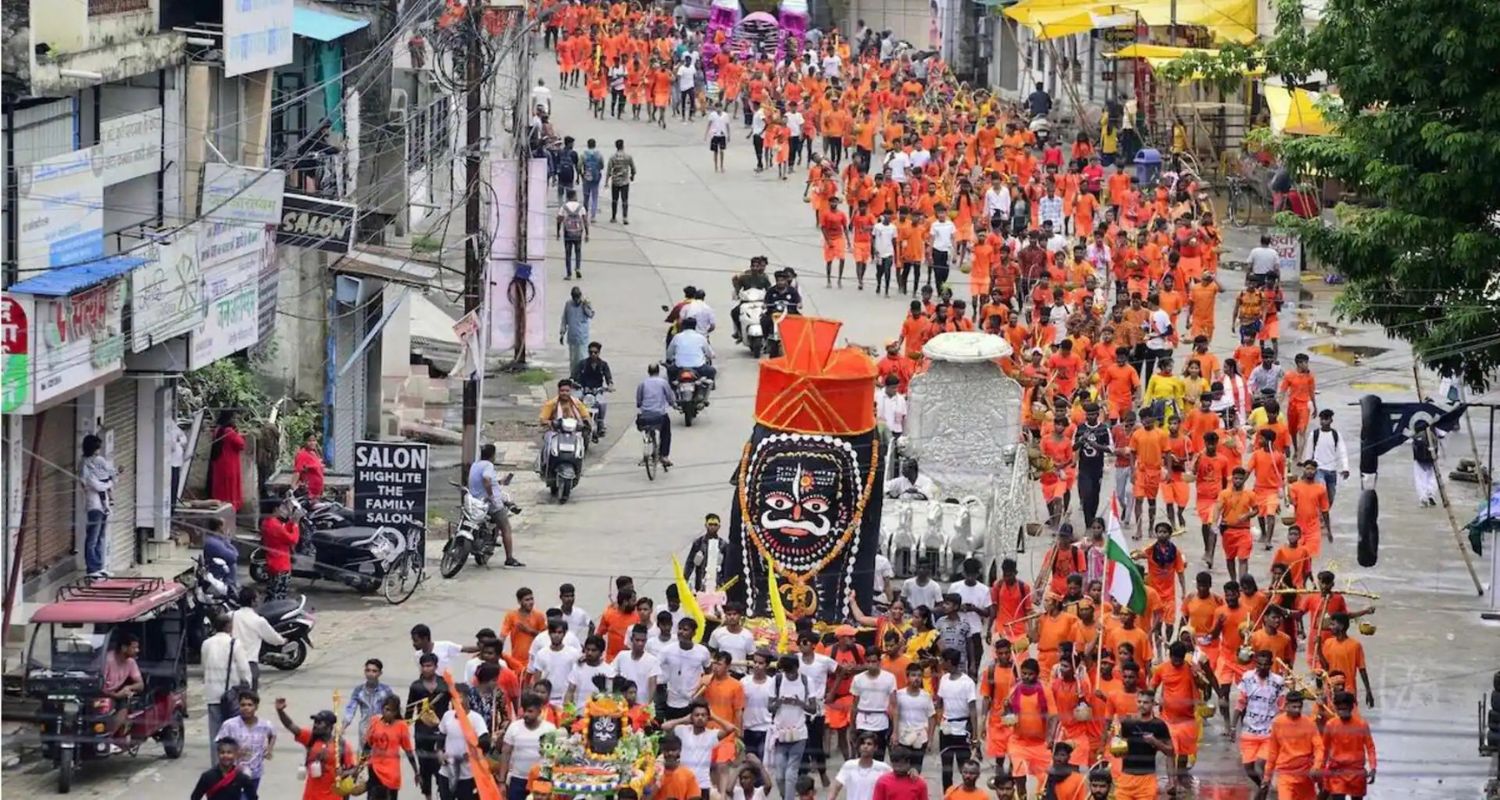The Supreme Court on Tuesday issued notices to the governments of Uttar Pradesh and Uttarakhand on a plea challenging their orders that require eateries along the Kanwar Yatra route to display QR code stickers disclosing ownership details, including religious identity. A bench comprising Justice MM Sundresh and Justice N Kotiswar Singh granted one week to both state governments to file their responses and scheduled the next hearing for July 22.
During the hearing, Deputy Advocate-General Jatinder Kumar Sethi, representing the two states, requested two weeks to submit their replies. However, this request was strongly opposed by senior advocate Shadan Farasat, appearing for the petitioners, who argued that the matter was urgent and time-sensitive, given that this year’s Kanwar Yatra concludes on July 23. The petitioners filed a fresh application seeking a stay on all orders issued by Uttar Pradesh and Uttarakhand that mandate public disclosure of the names and personal details of restaurant and eatery owners and their employees along the yatra route.

The application alleges that these directions aim to circumvent a previous interim stay by the Supreme Court that barred authorities from forcing eatery owners to reveal such personal information. In that ruling, the court had made it clear that food vendors could not be compelled to disclose ownership details publicly. According to the plea, the latest directions issued by both states this year require eateries to display QR codes that link to details of the owners—effectively disclosing their religious and caste identity under the guise of license regulations. The petitioners argue this is a direct violation of the right to privacy.
Also Read: SC cancels 1,158 Punjab professor, librarian posts over flaws
"The requisite license is a self-contained certificate that, although reveals the name of the owner, is displayed inside... equating this requirement to display a normal-sized license with the directive to display name of owner, manager, and other employees... or to not give eateries names which do not reflect religious identity of the owner are de hors the requirements," the plea stated.
The application further contends that the directives issued by the state authorities are vague and excessively broad. It accuses the states of conflating standard licensing procedures with unlawful demands, such as compelling businesses to disclose religious identities publicly. Such mixing of directives, the petitioners argue, creates opportunities for misuse and violent enforcement by vigilante groups and law enforcement officials.
Highlighting the urgency of the matter, the applicants warned that the state orders pose a "grave and imminent risk of irreparable injury to the fundamental rights of affected vendors." They urged the Supreme Court to issue an immediate stay to prevent religious profiling and potential harm to small business owners along the Kanwar Yatra route. The petitioners maintained that the true intent behind the state directives is to enable religious profiling of vendors during the Hindu pilgrimage, rather than ensure legal compliance or public safety. The case continues to draw significant public and legal scrutiny, with the next hearing slated for July 22.
Also Read: SC calls cartoonist’s PM Modi-RSS post 'inflammatory'


